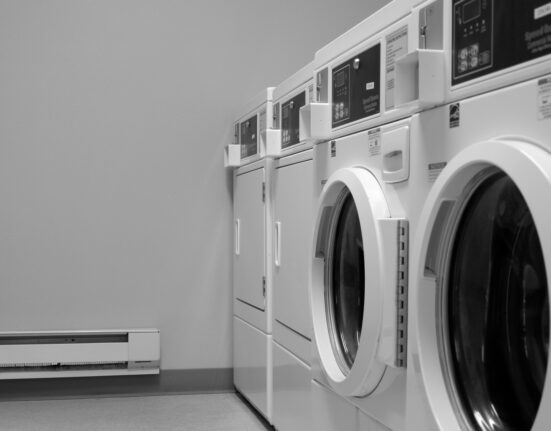In today’s rapidly evolving world, the convenience of discarding and replacing household items has become a societal norm, yet beneath this cycle lies an often-overlooked environmental cost. Despite the allure of shiny new appliances, the decision to repair rather than replace can serve as a powerful commitment to sustainability.
From understanding the full lifecycle of appliances like gas stoves to exploring accessible and cost-effective repair solutions, each decision to repair ripples outward, positively impacting both individual households and the broader ecosystem.
In this blog post, we’ll uncover the manifold advantages of choosing repairs over replacements, illustrating why this simple shift in habit is crucial for both your budget and the well-being of our planet.
Understanding the Appliance Lifecycle
The Journey of Your Appliance
Every appliance, from gas stoves to refrigerators, has a lifecycle. This begins with the extraction of raw materials, following through to production, transportation, use, and finally disposal. Each stage carries significant environmental impacts, from energy consumption to carbon emissions. Understanding this lifecycle helps us appreciate the potential benefits of extending an appliance’s life through repair.
Environmental Cost of Manufacturing
Manufacturing new appliances involves mining for materials like metals and plastics, often disrupting ecosystems and contributing to pollution. The process also requires energy, mostly derived from fossil fuels, exacerbating climate change. By opting for repairs, consumers can significantly reduce the demand for new products, thus minimizing these negative impacts.
Extending the Appliance Lifecycle
Repairing appliances prolongs their lifecycle, meaning less frequent replacements and fewer new items needing production. This not only conserves resources but also reduces the volume of waste sent to landfills. Less waste means reduced methane emissions, which are far more potent in trapping heat than carbon dioxide.
The Environmental Impact of Repair vs. Replacement
Waste Reduction Benefits
When appliances are replaced rather than repaired, the old ones typically end up in landfills. E-waste is one of the fastest-growing waste streams globally, posing serious environmental hazards. Toxic substances like lead and mercury can leach into soil and water, harming wildlife and human health. Repairing appliances reduces this risk by keeping them out of landfills longer.
Lowering Carbon Footprint
Repairs generally require less energy compared to producing new appliances. When you opt for an eco-friendly repair, you’re choosing a path that reduces energy consumption and, consequently, greenhouse gas emissions. Over time, these small changes add up, helping to lower your overall carbon footprint.
Sustainable Materials and Practices
Many repair services now focus on sustainability, using recycled parts and environmentally friendly practices. By supporting these services, consumers can further lessen their impact in the environment. Choosing eco-friendly options aligns with broader goals of sustainable living and responsible resource use.
Gas Stove Repair The Sustainable Choice
Common Gas Stove Issues
Gas stoves are a staple in many homes, valued for their quick heat and precision cooking. However, they can face issues like burner ignition failures, gas leaks, or uneven heating. Instead of considering replacement, a skilled repair can address these problems efficiently.
Benefits of Repairing Gas Stoves
Repairing gas stoves is not only cost-effective but also environmentally responsible. It saves the energy needed to manufacture a new stove and prevents the old unit from becoming landfill waste. Additionally, improving the efficiency of existing stoves can lead to better energy use at home.
Finding Reliable Repair Services
When looking for gas stove repair services, seek out companies that prioritize eco-friendly practices. Check reviews and ask about their sustainability policies. By choosing the right service, you ensure your appliance is not only fixed but also handled with environmental care.
Cost-Effective Solutions for Appliance Repair
Saving Money Through Repairs
One of the most immediate benefits of repairing appliances is cost savings. Repairs are typically less expensive than purchasing new units, especially for high-end models. This makes repair a smart financial choice, alongside its environmental advantages.
Evaluating Repair vs. Replacement
When deciding whether to repair or replace an appliance, consider factors like the cost of repair, the age of the appliance, and the expected lifespan after repair. Often, a simple fix can extend an appliance’s life by several years, providing excellent value for money.
Leveraging Technology for Efficient Repairs
Advances in technology have made diagnostics and repairs more efficient than ever. Technicians can quickly identify issues and find cost-effective solutions, reducing repair times and costs. This technological edge makes the case for repair even more compelling.
Practicing Sustainable Living Through Repairs
Building a Repair Culture at Home
Adopting a repair-first mindset is a step towards living sustainability. Educate family members on the benefits of repair and involve them in maintenance tasks. This approach fosters a culture of sustainability and responsibility toward the environment.
Community Impact of Choosing Repairs
Choosing repairs supports local businesses and technicians, strengthening community ties. It also raises awareness about sustainable practices and encourages others to adopt similar habits. A collective shift toward repairs can significantly benefit local economies and the environment.
Encouraging Circular Economy Practices
When you choose to repair, you’re contributing to a circular economy, where resources are reused and recycled rather than discarded. This approach reduces waste and optimizes the use of materials, aligning with global efforts to create a sustainable future.
How to Find Eco-Friendly Repair Services
Researching Local Options
Start by researching local repair services that emphasize eco-friendly practices. Look for certifications or memberships in environmental organizations as indicators of their commitment to sustainability.
Questions to Ask Your Repair Technician
Before hiring a repair service, ask about their approach to sustainability. Do they use recycled parts? How do they dispose of old components? Clear answers to these questions will help you make an informed choice.
Online Resources and Directories
Numerous online platforms provide directories of certified repair services. These resources can help you find reputable technicians who will treat your appliances and the environment with care.
Conclusion Choosing Repair for a Greener Future
In a world grappling with environmental challenges, the decisions we make about our appliances can have a significant impact. Opting for repairs over replacements is not only a practical and cost-effective choice but also a commitment to an eco-friendly lifestyle.
By understanding the appliance lifecycle and the benefits of repair, we are empowered to contribute to a more sustainable future. Beyond the immediate advantages of saving money and preserving quality, a repair-first approach fosters a culture of mindfulness and accountability.
Take the first step today by exploring local repair services that can extend the life of your appliances and significantly reduce your environmental footprint. Let’s champion a movement where sustainability is at the forefront of our everyday decisions, ensuring a healthier planet for future generations.








Leave feedback about this